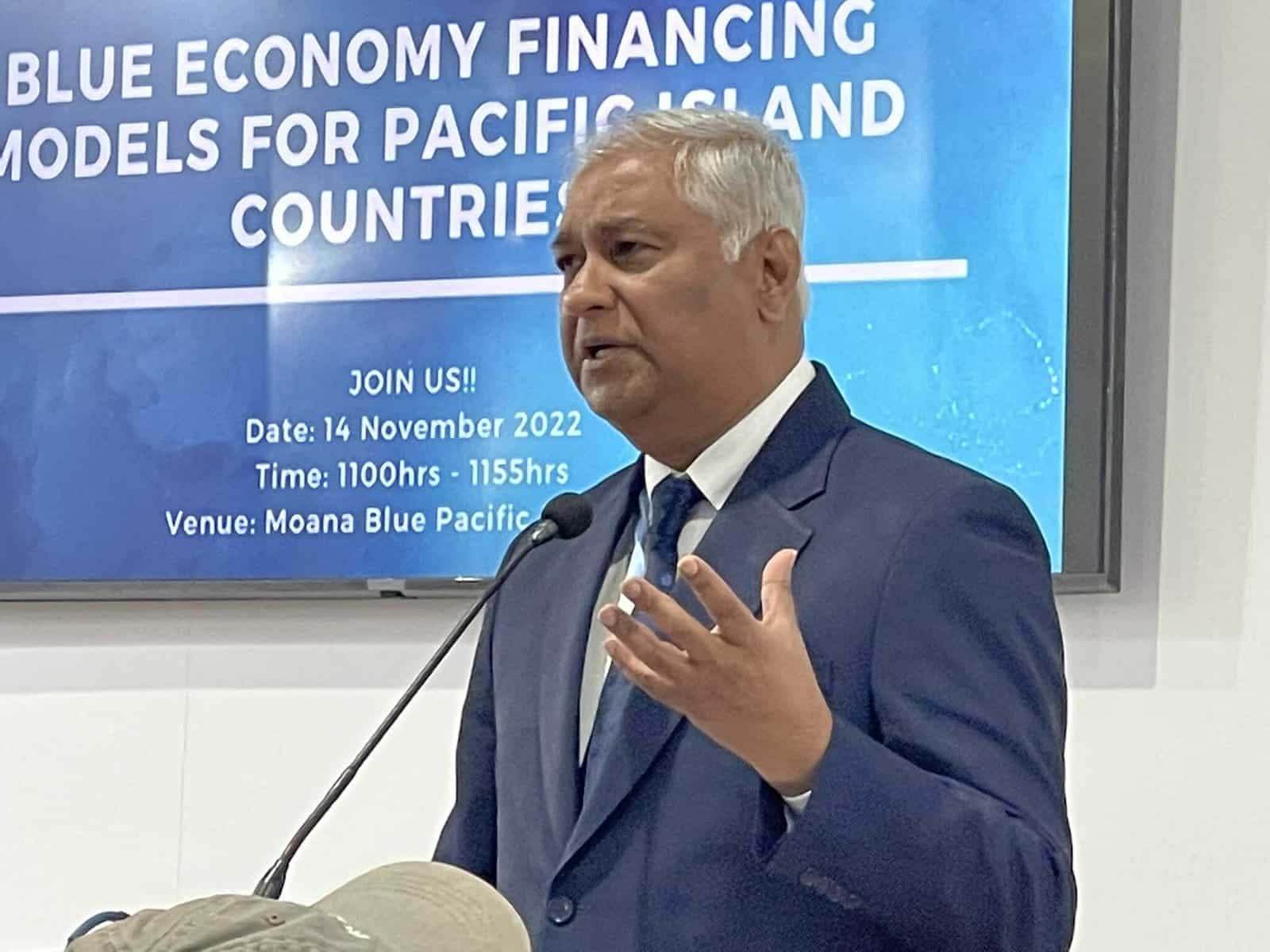Fiji and other Pacific Small Island Developing Countries (PSIDS) continued their push to include oceans on the agenda of the global climate talks in Sharm El Sheikh this week despite very little movement on the issue in week one of the negotiations.
It hasn’t dampened the interest for countries like Fiji who is leading the conversation and discussion to have oceans mainstreamed into the Conference of the Parties negotiation process.
“We need to mainframe oceans into the climate discussions. We are not there yet and we hope by COP28 in Abu Dhabi it will start to happen, according to Ambassador Satyendra Prasad of Fiji.
He is standing in as political champion on oceans in place of Fiji’s Attorney General and Minister for Economy, Aiyaz-Sayed Khaiyum who is not at COP27 because of national election commitments in Fiji.
“We are not there but we will get there. We need to work with our partners to increase understanding of why oceans should be an important part of the climate change talks going on here. We are leading from the front and have the support of our Pacific leaders in pushing this forward.
Ambassador Prasad is optimistic that PSIDS collectively are growing the oceans discussion at the climate talks.
“We hope that when we go to COP28 we would have moved further in main framing oceans in all areas of the climate agenda. It’s there in reference – but not in the text.
The PSIDS main asks on oceans include the full implementation of Glasgow COP decision to mainstream oceans issues across relevant agenda items and in the work plans of the COP27 constituted bodies. They are also asking for a more structured approach to the agenda setting for future oceans and climate change dialogues and a High Level Blue Finance Ministerial event at COP27 that seeks to commit financing for ocean action.
“Oceans and climate change is a key issue for PSIDS and was initiated by Fiji during their COP23 Presidency.”
Adding his support to the push for oceans in the climate change negotiations, Secretary General of the Pacific Islands Forum, Henry Puna said climate change and oceans are transboundary and planetary in nature – and therefore they should be treated as one.
“But the ocean does not have to be regarded as a “victim”. It can in fact be the “hero”.
He said the ocean offers hope and indeed potential in this climate crisis.
“The ocean is in many ways “playing its part” to absorb the effects of climate change – by acting as a carbon sink, and by providing precious ecosystem services that offset the harm, caused by anthropogenic global warming.
“But we need a healthy ocean, for this to continue. And that is why oceans finance is critical. Not only because it helps preserve and protect our ocean; but because it helps to minimise climate change, said Secretary General Puna. He revealed at a side event last week that he’s directed his team at the Forum Secretariat to commence work on a valuation of the Pacific Ocean “so that we can fully appreciate the value of our ocean resources, ecology, ecosystems, biodiversity and cultural values.
